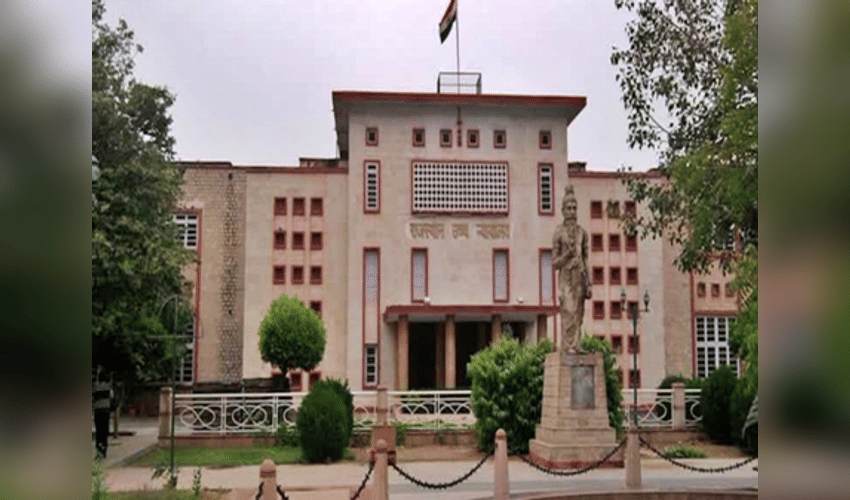Military
Rajasthan HC directs state govt to implement cyber safety measures
Published On Fri, 28 Nov 2025
Asian Horizan Network
1 Views

Jaipur, Nov 28 (AHN) In a significant move to curb the rise in cyber fraud and digital arrest scams, the Rajasthan High Court, on Friday, issued a landmark judgment directing the state government to implement strict cyber safety measures.
The court has ordered the formulation of new guidelines for children's mobile phone usage and capped the issuance of SIM cards to a maximum of three per individual.
A single bench of Justice Ravi Chirania delivered the judgment while rejecting the bail pleas of two Gujarat-based accused, Adnan Haider and Rahul Jagdish Jadhav, charged with defrauding an 84-year-old Jodhpur couple of Rs 2 crore.
The accused duo allegedly posed as officials of the Mumbai Cyber Police, Enforcement Directorate, and Central Bureau of Investigation to extort money over multiple transactions made between April 29 and May 8, 2025.
The High court said that the investigation was still at an early stage, with more suspects yet to be apprehended.
Among key directives issued by the High Court is standard operating procedure (SOP) for children's mobile use and SIM card restrictions.
The Home Department has been instructed to create a SOP in consultation with the Education Department and parent bodies to regulate the use of mobile phones, online games, and social media by children aged below in schools.
Additionally, telecom services will be barred from issuing more than three SIM cards under a single name.
The next directive issued by the high court is establishment of Rajasthan Cyber Crime Control Centre (R4C).
Taking cognisance of the surge in cybercrime, the court directed the Additional Chief Secretary (Home) to set up the Rajasthan Cyber Crime Control Centre (R4C) on the lines of the Indian Cyber Crime Coordination Centre (I4C).
It also ordered the recruitment of dedicated IT Inspectors, who will exclusively investigate cybercrimes and will not be transferred to general police roles.
Also, stricter guidelines have been issued for banks, fintech firms, and ATMs.
Observing that most cyber frauds exploit the banking ecosystem, the court mandated all banks and fintech companies to deploy RBI-developed AI tools like "Mule Hunter" to detect mule accounts and suspicious transfers.
For customers with annual transactions below Rs 50,000 or limited digital literacy, internet banking and UPI limits may be tightened as per legal provisions.
Banks have also been instructed to physically verify large transactions, especially for elderly or vulnerable account holders.
The drafting of SOP has been ordered to prevent digital arrest scam.
A separate SOP will be drafted to prevent rising cases of "digital arrests", where fraudsters threaten victims using impersonation tactics.
Banks and fintech firms must jointly identify at-risk customers and conduct monitoring, counselling, and cyber awareness campaigns -- especially when fixed deposits are prematurely withdrawn.
Regulation of gig workers, call centres, and digital devices has been ordered.
All digital devices -- new or second-hand -- sold in Rajasthan must be brought under the supervision of the Director General (Cyber).
An online registration system will be created for this purpose.
Call centres and BPOs will now need mandatory registration with DG Cyber and adherence to a code of conduct.
Platform-based gig workers (Ola, Uber, Swiggy, Zomato) must undergo police verification.
Dual registration with the Transport Department and DG Cyber, uniform and ID cards with QR codes as well as mandatory audits of government digital transactions has also been ordered.
The court directed the state to ensure strict compliance with the Digital Personal Data Protection Act, 2023, and the 2025 Rules.
All digital transactions in government departments will now be subject to monthly audits.
The court judgment marks a strong push toward tightening Rajasthan's cyber safety framework amid rising cyber fraud, impersonation-based crime, and misuse of digital platforms.



